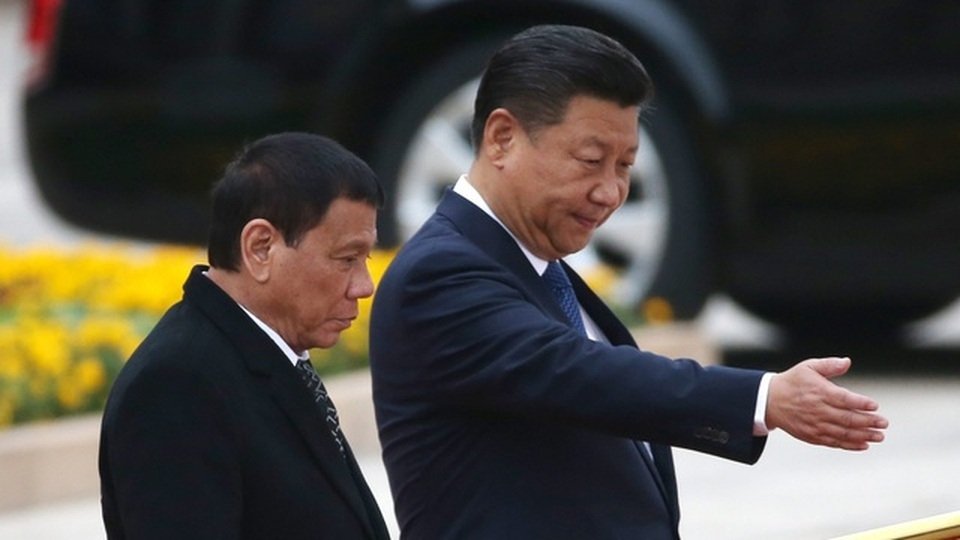(Dan Tri) – China continues to protest the international arbitration court’s ruling on the East Sea after the Philippine President brought this document to the United Nations.
Chinese President Xi Jinping (right) and Philippine President Rodrigo Duterte (Photo: AFP)
“China’s position on the so-called arbitration award is very clear: We do not accept and we do not recognize this so-called award.
Previously, in his speech at the 75th session of the United Nations General Assembly on September 22, Philippine President Rodrigo Duterte reiterated the ruling of the International Permanent Court of Arbitration on the East Sea.
The 2016 ruling of the Permanent Court of International Arbitration in the Netherlands was a victory for the Philippines after pursuing a lawsuit against China over Beijing’s unreasonable `cow tongue line` (or nine-dash line) sovereignty claim.
China refused to participate in the lawsuit process and has since blatantly rejected the ruling.
Speaking before the United Nations General Assembly, President Duterte declared that the Philippines `firmly opposes efforts to destroy this ruling` and `welcomed the growing number of countries supporting the ruling`.
Previously, President Duterte’s administration also signaled to put the ruling aside when Mr. Duterte wanted the Philippines to move closer to China and gradually move away from its traditional ally, the United States.
According to Ambassador Huang, although President Duterte mentioned and strongly affirmed the ruling on the East Sea before the United Nations General Assembly, it did not hinder the friendship between China and the Philippines.
`The South China Sea issue is only a small part of the China-Philippines relationship,` Mr. Huang said.
The Chinese Ambassador also cited the statement of Philippine Foreign Secretary Teodoro Locsin Jr.
Ambassador Huang said that the consensus between the leaders of China and the Philippines on setting aside maritime disputes and managing disputes through bilateral consultations should be strictly enforced by the two countries.
According to Mr. Huang, dialogue mechanisms such as the Bilateral Consultation Mechanism (BCM) `are working very well to resolve differences` and promote practical cooperation.
Mr. Huang said that outside powers must not be allowed to damage the relationship between China and the Philippines.
Ambassador Huang also rejected `false accusations` about China’s so-called `debt trap`.
“In fact, there is no evidence that Chinese projects threaten the security of the Philippines.
